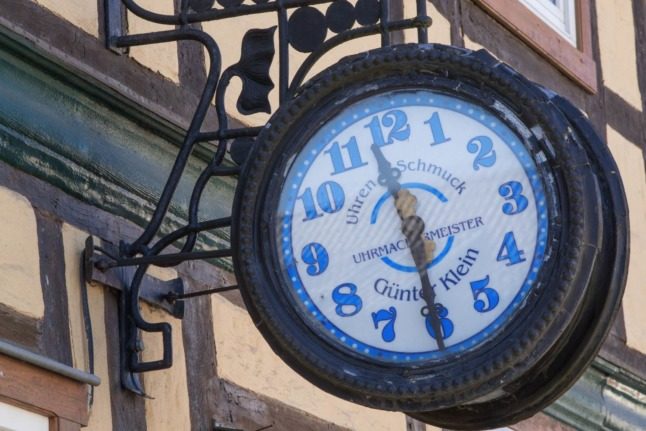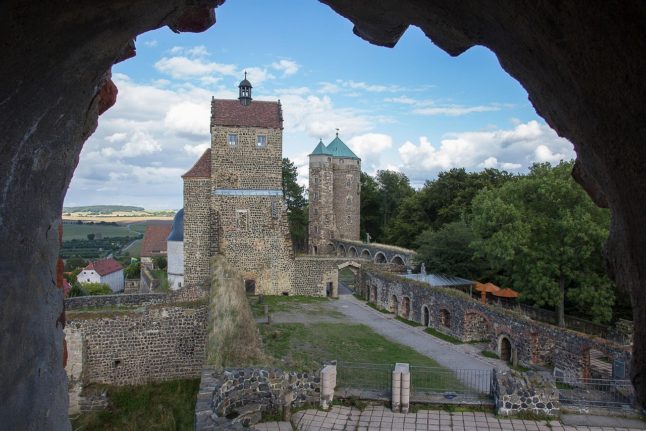No more vaccine priority list
Starting on June 7th, vaccine appointments around Germany will be open to anyone 12 and over, regardless of whether they belong to a priority group or not.
Currently appointments at vaccine centres are available in most states to groups 1 and 3, which include anyone over 60, certain professions, and those with pre-existing medical conditions. Most states also allow GPs to issue vaccines at their own discretion, although appointments can be hard to come by.
READ ALSO:
- Vaccines to be offered to children age 12 and over from June 7th
- Covid jabs for children in Germany will be ‘individual decision’, says Health Minister
Germany’s Deutsche Bahn gets supersized – and refunds go digital
As the state-owner rail operator announced in December, the new fourth-generation high-speed train (XXL-ICE) is scheduled to hit the tracks for the first time in June. With 919 seats and 13 train sections, it will be the largest of its kind to date. According to Deutsche Bahn, the first area of operation will be the route between Hamburg, Cologne, Stuttgart and Munich.
If you book a trip on one of these super fast trains, and it’s still running late, fear not: for the first time in June, Deutsche Bahn will also be offering online refunds that can be issued at just a few button clicks.

An ICE train in Berlin. Photo: DPA
More apprenticeships
Starting on June 1st, companies that maintain or even expand their available spots for trainees despite major coronavirus-related problems can receive up to €6,000 per training place, twice as much as before. Companies with a maximum of 499 employees – instead of the previous 249 – will be eligible.
School holidays start
For millions of schoolchildren, the second “coronavirus school year” is coming to an end. Children and young people in the coastal states of Mecklenburg-Western Pomerania and Schleswig-Holstein will be the first to start their summer vacations – their last day of school is June 18th.
Bavaria will be the last state to start on July 30th. August 1st will then mark the only weekend in Germany when all schoolchildren will be on summer holidays at the same time.
Gender reassignment surgeries of children
Parents of intersex children may no longer have gender reassignment surgeries performed on their offspring. When the law came into effect at the beginning of June, treatments intended to align a child’s physical appearance with that of the male or female sex were banned. The law was put in place to better allow children to decide for themselves at a later date on the gender they most identify with.
Exceptions are only allowed if the procedure cannot be postponed medically and is approved by an interdisciplinary commission. Estimates put the number of people born with ambiguous gender characteristics in Germany at around 160,000.
Goodbye (free) Google storage space
Google is doing away with unlimited storage space in its photo service. Previously, “Google Photos” allowed users to upload images in reduced quality – the company calls this “high quality” instead of “original” – to the cloud without restrictions.
Starting on June 1st, they will be counted toward the free limit of 15 gigabytes. Anyone who reaches it will have to buy additional storage space. Users of Google’s Pixel smartphones are excluded.
Digital passport
By the end of June, it should be possible to use a digital corona vaccination certificate throughout Germany, according to Health Minister Jens Spahn.
The so-called CovPass is planned both as a separate app and as a new function in the existing Coronavirus Warning app.

The digital vaccination pass. Photo: picture alliance/dpa/dpa-Zentralbild-Pool | Soeren Stache
The digital vaccination passport will not only certify Covid vaccinations, but also show negative tests or recovery from an infection. It would thus be important proof for all people who are entitled to relaxations. However, it is not to become compulsory: the traditional ‘yellow booklet’ vaccine card will remain valid.
READ ALSO:
- CovPass – Here’s how Germany’s new digital vaccination pass will work
- What is Germany’s new digital vaccination pass and when can I get it?
- What’s the latest on how the EU ‘Covid passports’ will work for travellers?
Changes to travel rules?
New coronavirus virus entry regulations were introduced May 12th and relate to several provisions – for example, the quarantine requirement. This same regulation applies “until June 30, 2021, at the latest,” according to the federal regulation.
At the moment there are strict quarantine and testing requirements in place.
We’ll find out how the rules will change after this date and make sure to provide you with an update.
READ ALSO: What you need to know about the latest rules on travel to and from Germany



 Please whitelist us to continue reading.
Please whitelist us to continue reading.
I work in Germany, come from Scotland, live in England and am married to a Danish lady. The Local is invaluable to me with regards to keeping up with ever changing restrictions and news. My German is not great, but I always make the effort. Thank you for providing this great service.
Hi Frank, thank you so much for your lovely comment! We’re glad you find the information really helpful.
Rachel